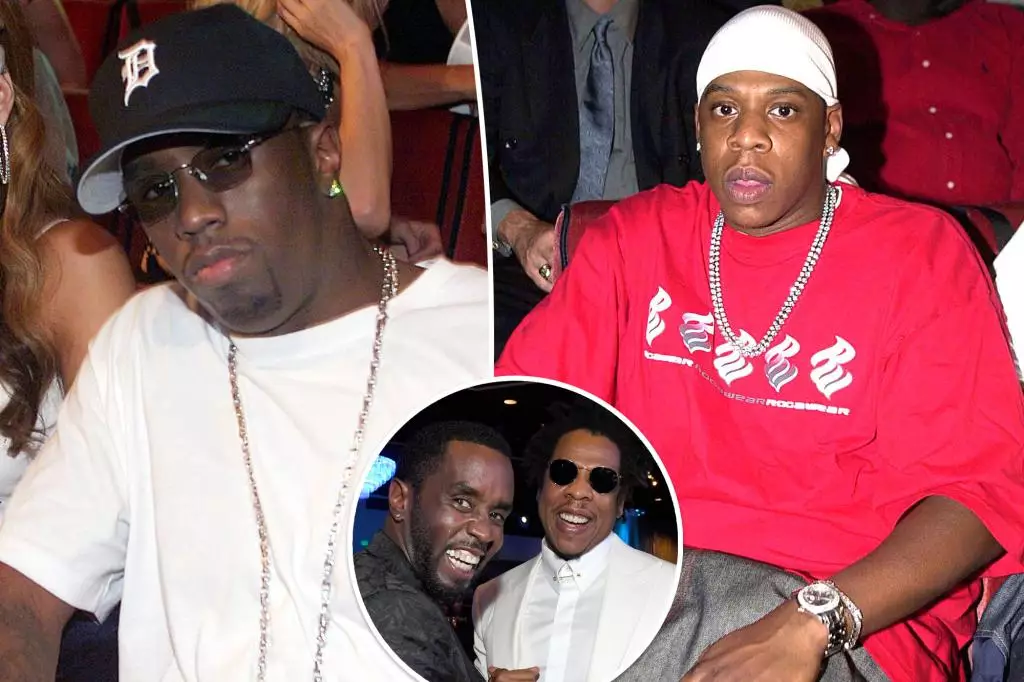The entertainment industry often finds itself enmeshed in a web of scandals, but the recent allegations against two of hip-hop’s most prominent figures have sent shockwaves through both the music world and society at large. Jay-Z, born Shawn Carter, faces accusations along with Sean “Diddy” Combs of heinous acts stemming from a 2000 MTV Video Music Awards afterparty. This article delves into the details of the case, the responses from the accused, and what this entails for the broader conversation about accountability and justice in the industry.
According to the civil lawsuit re-filed by attorney Tony Buzbee, the alleged incident occurred when the complainant, referred to as Jane Doe, was just 13 years old. She recounts a disquieting tale in which she was offered an intoxicating drink at a party in New York, a scenario that she claims rendered her incapacitated. The aftermath of this event has become the substance of her allegations, which detail both Combs and Jay-Z as players in a disturbing situation that led to her reported victimization.
In her account, Jane Doe describes entering a bedroom to lie down—an action that, if true, highlights an exploitative breach of trust. The subsequent details of the accusation are troubling; they imply a deliberate orchestration of events meant to take advantage of a vulnerable young girl. This narrative not only raises questions around the moral standing of these celebrated artists but significantly contributes to the ongoing discussion about the safety of individuals in typically glamorous yet perilous environments.
In stark contrast to the grave accusations, Jay-Z has categorically denied the allegations, claiming that they are part of a “blackmail attempt” by Buzbee. In a passionate statement, he articulated his disdain not only for the accusations but also for the attorney’s tactics, asserting that the nature of the claims has pushed him further into a corner, prompting a desire to defend his name publicly.
Jay-Z’s verbose rebuttal goes beyond mere denial; he staunchly urges the filing of a criminal complaint instead of a civil one, suggesting that the real perpetrators of such crimes against minors deserve the harshest penalties. This portion of his response raises an essential point about the distinction between civil and criminal proceedings—issues of justice often oscillate between seeking reparations and pursuing criminal accountability.
Diddy’s legal team took a similar stance, condemning the lawsuit as a publicity stunt aimed at exploiting celebrities for monetary gain. His representatives echoed Jay-Z’s emphasis on confidence in the judicial system, contending that the truth would ultimately emerge in court. However, Diddy’s current legal troubles—facing sex trafficking charges and held in custody—complicate matters significantly.
As these high-profile accusations unfold, they reflect not just personal tragedies but also a societal reckoning regarding the treatment of women and minors in the entertainment industry. There exists a troubling pattern where individuals in power exploit the vulnerable—and this reflects wider themes in society where voices of the oppressed often go unheard.
Moreover, the attention surrounding this case serves as a stark reminder of the emotional and psychological toll that such allegations can have on both the survivors and the accused. Jay-Z articulated a heartfelt concern for his family, emphasizing how the allegations could affect his wife and children, particularly his teenage daughter. This facet of personal impact reminds us that behind every sensational headline, real lives can be disrupted, and narratives can spiral out of control.
The accusations against Jay-Z and Diddy directly challenge the narratives surrounding celebrity culture and accountability. It is crucial for all involved—especially for victims of any form of assault—to feel that their voices matter and that justice will be served. This case is a vital chapter in an ongoing dialogue about consent, power dynamics, and the ethics of representation in the public sphere.
As the story continues to evolve, it compels us to engage in discussions about how we treat allegations against prominent figures, the legal mechanisms at play, and the implications for society at large. Jordy’s path forward remains uncertain, but one thing is clear: the unfolding events will have lasting ramifications in both the music industry and the perceptions of celebrity accountability.

